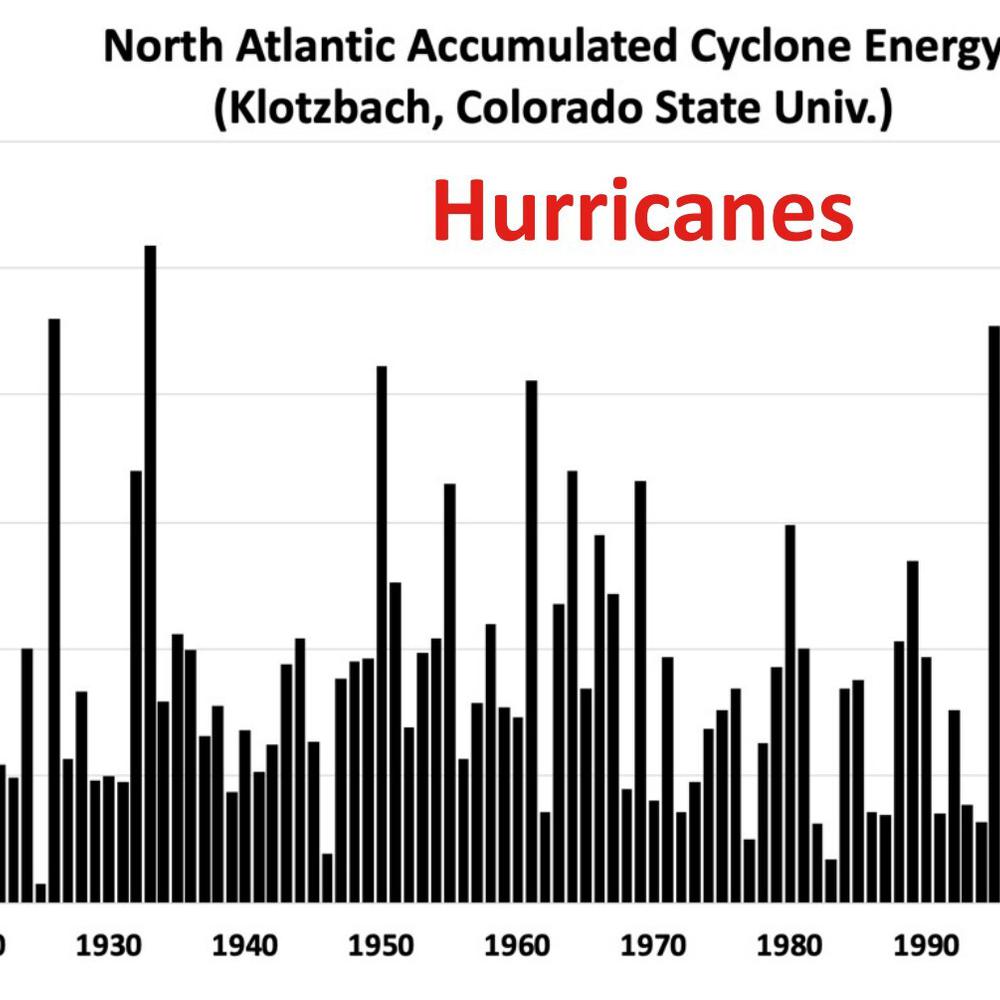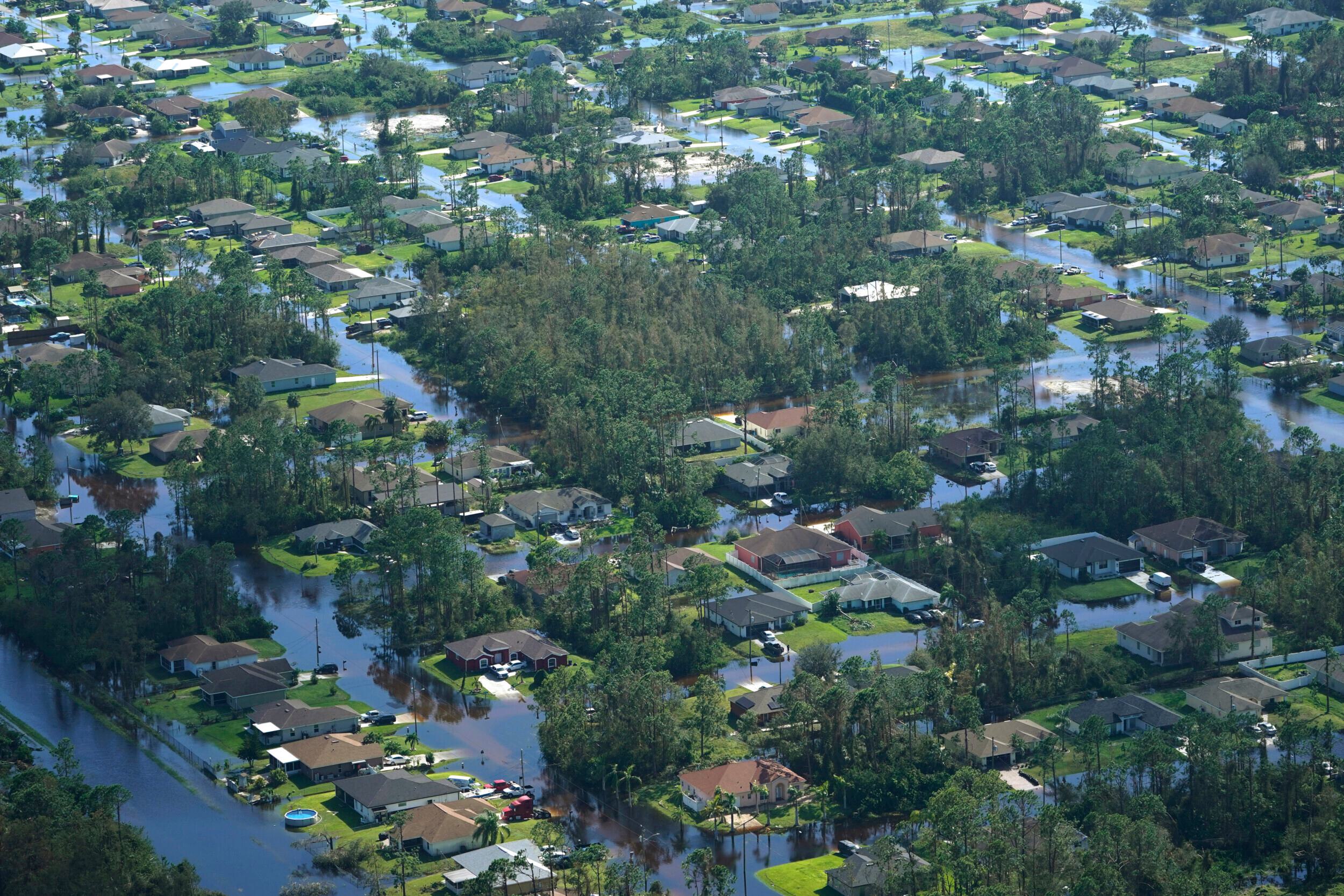While politicians and the national media tie destruction caused by Hurricane Ian to climate change, Alabama's climatologist is uncovering the truth with actual data.
State climatologist Dr. John R. Christy has been a professor for 25 years at the University of Alabama in Huntsville. He has testified about climate change at 20 congressional hearings, studied the facts, and revealed the truth about climate change.
The latest theory is that climate change has caused more hurricanes and stronger hurricanes. Almost immediately following the devastating storm Hurricane Ian, the President of the United States and other Democrats, such as U.S. Sen. Amy Klobuchar (D-Minn.), went into political mode. Klobuchar said Democrats must win the midterms to stop climate change.
“That’s why we got to win this midterm,” Klobuchar said on MSNBC. “We just did something about climate change for the first time in decades. That’s why we got to win this, as that hurricane bears down on Florida. We got to win in the midterms. We understand that.”
It is true that to form that hurricanes need warm water. They typically begin churning near the equator, Christy explained to 1819 News.
“You need an atmosphere that isn’t very windy,” Christy said. “In other words, the atmosphere is not blowing the heat away, and so that air that’s over that warm water just sort of cooks. It doesn’t have any way to cool itself by being blown away.”
Storms start to form, and they take heat from the warm water, exhaust it into the upper air and begin to spin.
“That heat needs to go somewhere, and it is expelled in a sense through a hurricane,” Christy outlined.
But climate change, which used to be known as “global warming,” is not the reason for more hurricanes or stronger hurricanes, Christy said after looking at data. He also said it’s not because of the actions of humans, such as the use of certain gases and aerosol cans.
“It’s part of just the natural changes over time,” said Christy. “They [the number of storms] go up and down, up and down. So, in terms of humans affecting the climate, no. There’s no evidence of that in the hurricanes or tornadoes.”
But despite several reports that we are experiencing more storms now than ever before, that is not true, according to Christy's report in 2021. (see chart)

Christy said the proof is in the numbers, but he isn’t the only one not buying into the push for humans to change their ways to save the planet.
“The United Nations Climate Change Panel also says that tornados and hurricanes are not becoming more frequent,” added Christy. “So, it’s just an easy answer for news media to say, ‘Oh, that’s due to climate change or something like that.’ No, we’ve always had hurricanes! We’ve always had tornadoes!
“…Unfortunately, the general media does not want to tell a story that says, ‘We’ll, not much is happening.' They want to blame it on something, and that’s just not science … It’s fear-mongering for sure. It’s not science.”
While there is no doubt hurricanes will continue to cause damage and claim lives, there is data that offers a positive outlook.
“We are getting smarter,” said Christy. “The number of deaths from hurricanes and any drought or severe weather has fallen over 95% over the last 100 years.”
When it comes to storm damage, Christy admits it is true that we have more damage than we have seen before, but it’s not because the storms are stronger due to climate change.
“That’s because we have more people and more infrastructure, so there is more damage simply because we have put more things in the way of our tornadoes and hurricanes,” Christy explained.
Weather experts in Alabama say the only thing people can do is stay informed and have multiple ways to get weather information and warnings. Weather radios, weather apps, and local news coverage are great ways to get alerts. The state also has polygon-based outdoor weather sirens. If you hear the siren, you are in the weather warning polygon.
Read Christy’s Practical Guide to Climate Change in Alabama here.
To connect with the author of this story, or to comment, email erica.thomas@1819news.com.
Don’t miss out! Subscribe to our newsletter and get our top stories every weekday morning.









